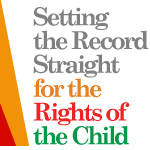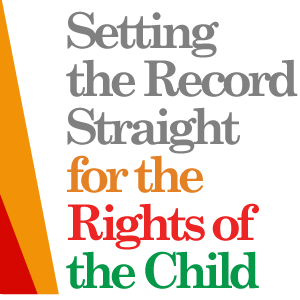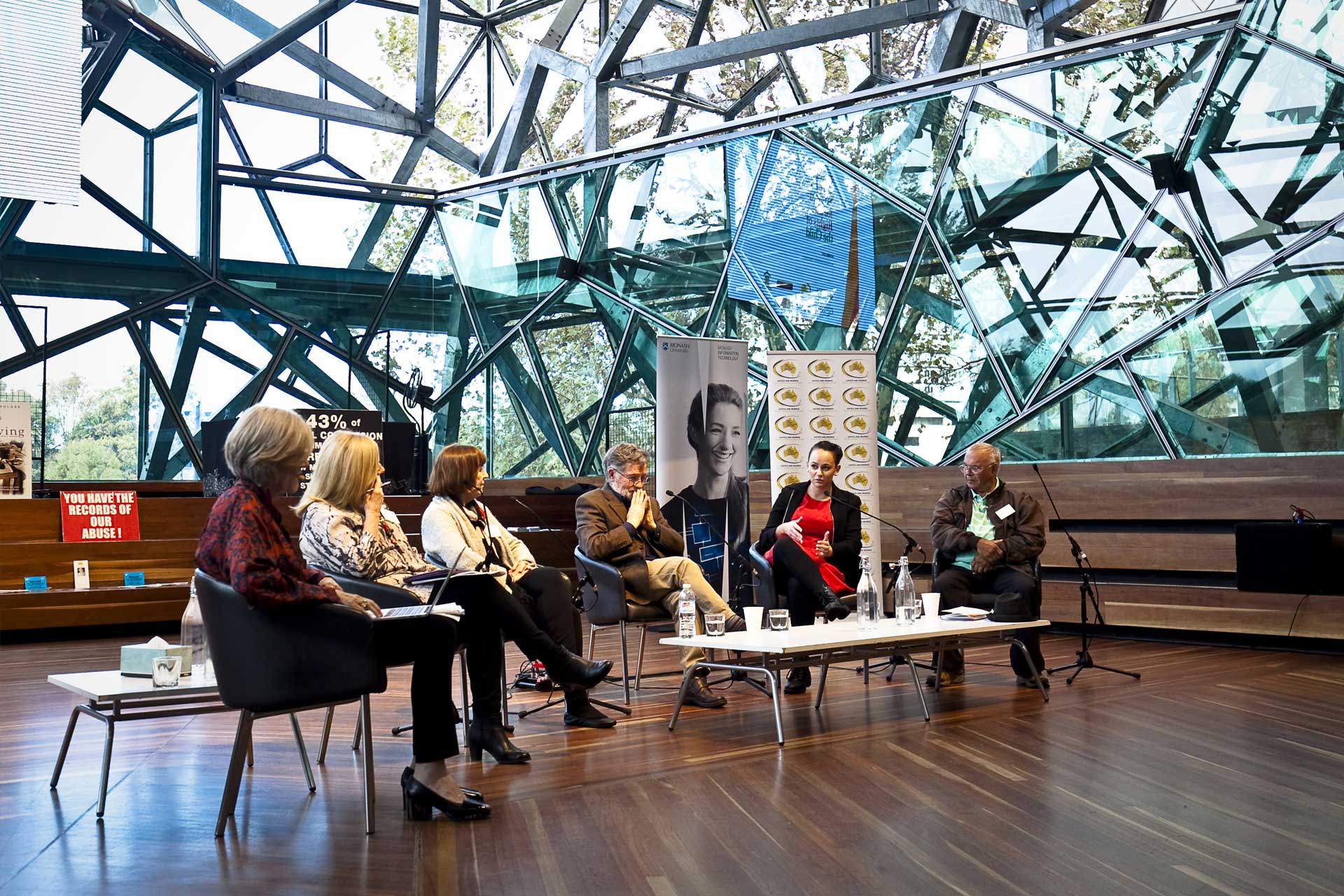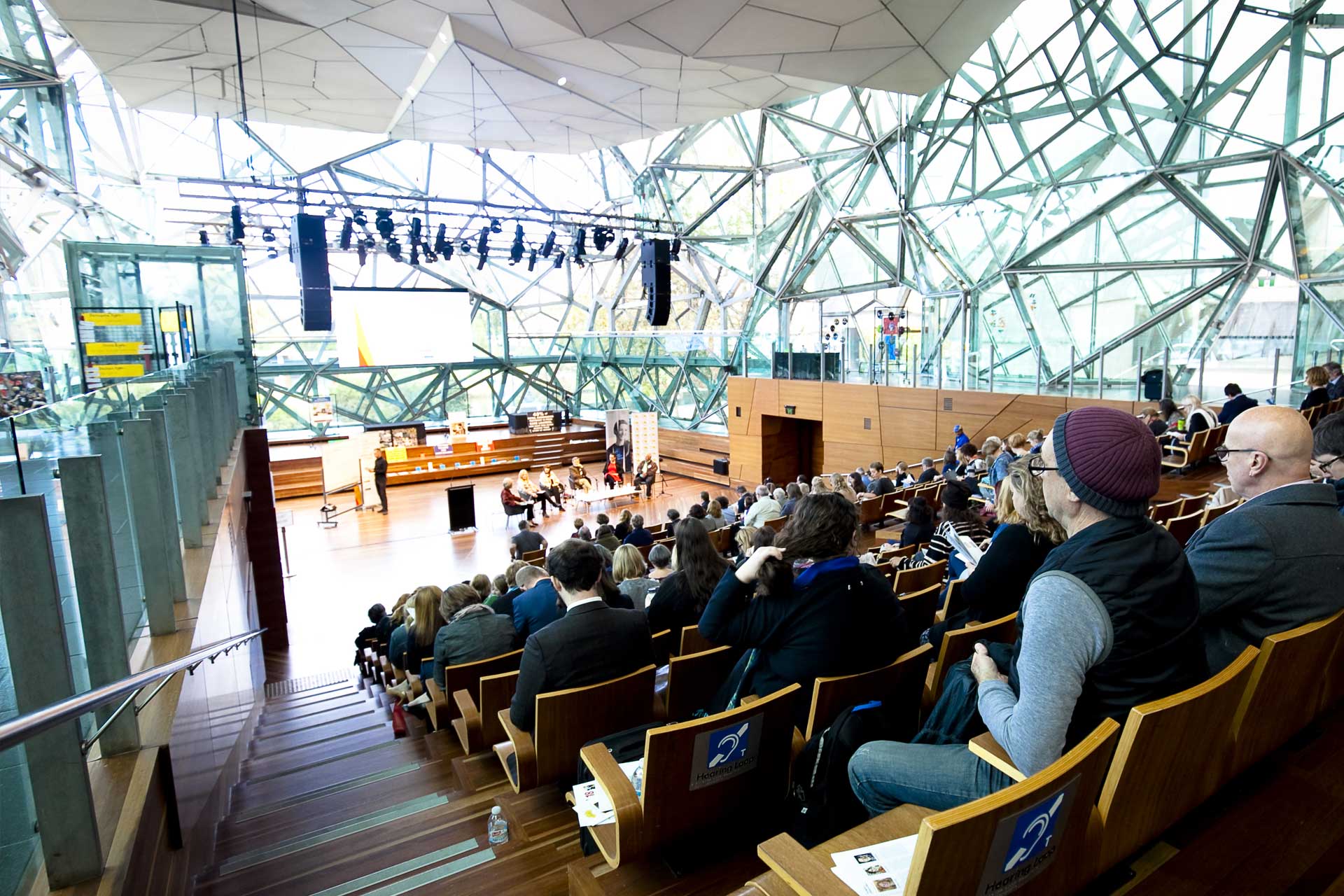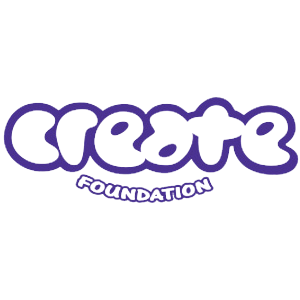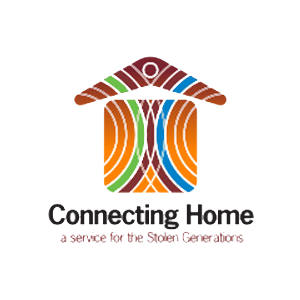Day 1: Community voices and experiences of past and present practice
Monday 8 May 2017

Summit MC and Facilitator
Jenny Brockie is well known for hosting SBS TV’s weekly program Insight, where she facilitates lively and thought provoking discussions on a wide range of topics. Jenny’s career spans television, radio and print. She has received a swag of awards for her work including the Gold Walkley, two AFI Awards, a Logie, and a Human Rights Award. Jenny has also won eight United Nations Association Media Peace Awards for her work on Insight.
| Time | Session | Description | |
|---|---|---|---|
| 8.30 – 9 am | Registration | ||
| 9:15 – 9:30 | Welcome | Welcome to Country
Welcome to the Summit
|
|
| 9:30 -11:00 | Why don’t we do better, when we know better? | The recordkeeping and archiving needs for childhood out-of-home care are part of one of society’s wicked problems, namely how to ensure that the systems set up to protect children from abuse and neglect do not themselves cause harm?
In this session we will hear from eminent community advocates of the importance of quality recordkeeping and archiving for those who as children have been caught up child welfare and protection systems. We will also hear of where recordkeeping and archiving systems are failing to meet lifelong identity, memory and accountability needs, why the problems are systemic and what we need to do transform the way records for childhood out-of-home care are created, captured, managed, archived and accessed. Opening keynotes by
|
|
| 11:00 -11:30 | Morning tea | Interaction with Imagined Archive Exhibition | |
| 11:30 – 1pm | Got my file, but that’s not me | In this session, we will hear from community representatives about their expectations of recordkeeping and archiving systems to support lifelong wellbeing. The aim is to identify the ways in which records and archives impact on developing and nurturing a sense of self, maintaining connections to family, community and culture, and in supporting quality decision making.
Key Questions
Facilitated discussion featuring
|
|
| 1:00 – 1:45 | Lunch | Interaction with Imagined Archive Exhibition | |
| 1:45 – 3:15 | What good recordkeeping ought to be | In this session we will hear from those who create, manage, use and provide access to records about what they need from recordkeeping and archiving systems to provide quality services and support for lifelong identity, memory and accountability needs. The aim is to identify operational, technological, legislative, political, and cultural (organisational and professional) issues getting in the way of developing and implementing recordkeeping and archiving systems that meet these needs.
Key Questions
Part A. Accessing records of past ‘care’ experiences Facilitated discussion featuring
Part B. Recordkeeping in current and future out-of-home care Facilitated discussion featuring
|
|
| 3:15 – 3:45 | Afternoon tea | Interaction with Imagined Archive Exhibition | |
| 3:45 – 4:45 | Having input in a story that is going to be written about me | In this session we will hear from young care leavers and advocates for better out-of-home care experiences about their aspirations for recordkeeping and archiving systems. The aim is to explore ways in which those who experience out-of-home care can participate in the recordkeeping and archiving that has an impact on their lives. It has been developed through The Imagined Archive Exhibition Project with young Care leaver advocates.
Key Questions
Presenters
|
|
| 4:45 – 5:00 | Issues for Tomorrow | A chance to reflect on the issues raised across the day’s discussions and to highlight the matters to address tomorrow led by Professor Sue McKemmish and Barbara Reed, COSI, Monash University | |
| 5:00pm | Smoking Ceremony |
|
Day 2: Planning For the Future: Transforming Practice
Tuesday 9 May 2017
| Time | Session | Description | |
|---|---|---|---|
| 8.45 – 9am | Registration | ||
| 9 – 9:45 am | Calls to action | Justice Jennifer Coate will provide an update from the Royal Commission into Institutional Responses to Child Sexual Abuse on their records and recordkeeping findings and potential recommendations. | |
| 9:45 -10:45 | Making change happen | In this session, we will hear from those who have been part of advocating, developing and implementing strategic transformation agendas. The aim is to discuss how to bring together diverse interests to commit to working towards a shared vision.
Key Questions
Small panel discussion featuring
|
|
| 10:45 -11:15 | Morning Tea | Interaction with Imagined Archive Exhibition | |
| 11:15 -12:30 | Recordkeeping and Archiving Reimagined | In this session we will present some ideas around re-imagined recordkeeping and archiving systems. The aim is to explore the potential in digital and networking technologies to move beyond automating paper practices so that multiple rights in records can be represented and enabled.
Key Questions
Community Archiving Systems
Family Finder
ChildStory
Rights in Records by Design
|
|
| 12:30 – 1:15 | Lunch | Interaction with Imagined Archive Exhibition | |
| 1:15 – 2:45 | Planning the Future Part 1 | A discussion with the range of stakeholder communities at the event to develop a shared vision of participatory recordkeeping and archiving systems.
Key Questions
|
|
| 2:45 – 3:15 | Afternoon Tea | Interaction with Imagined Archive Exhibition | |
| 3:15 – 4:30 | Planning the Future Part 2 | Continued discussion with a focus on developing an action plan for transforming recordkeeping and archiving around multiple rights in records. | |
| 4:30 – 5:00 | Outcomes, Reflections and Close | In this final session we will reflect on what has been learnt across the two days of discussions.
Key Questions
Contributors
THANKS AND CLOSE |
